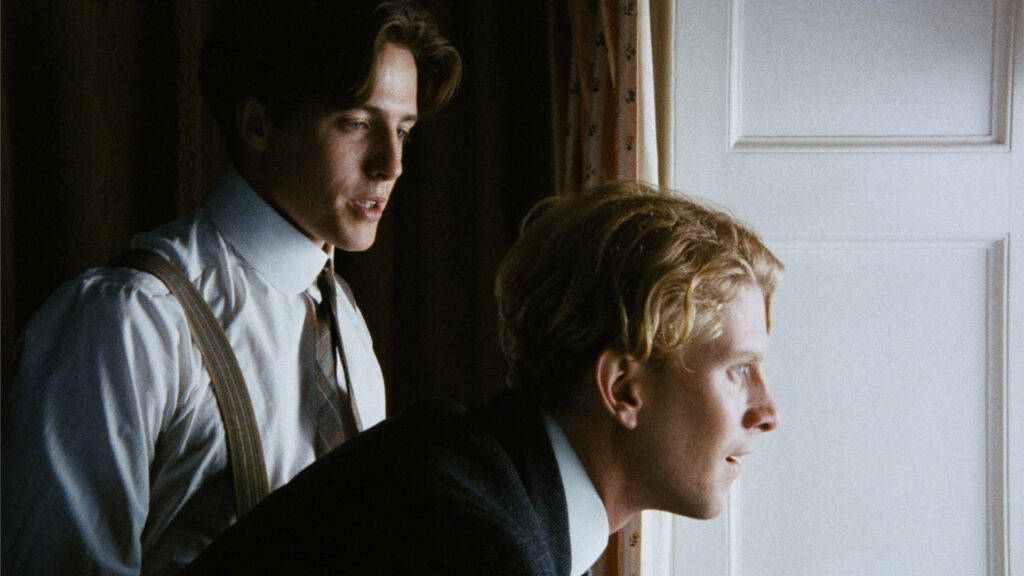
The novel Maurice was written in 1914 by E.M. Forster but remained unpublished until a year after his death in 1970. Forster had determined that his novel could never be published in Britain while homosexuality was a crime and so withheld it. However the more extraordinary feature of the novel, that remains no less extraordinary in the film, is that it has a happy ending.
James Ivory and Ismail Merchant had successfully adapted another E. M. Forster to film (A Room With A View) two years prior to the release of Maurice (1987). Not only had the equation of Merchant, Ivory and Forster been a financial breakthrough for the filmmakers but a critical one as well. Maurice didn’t exactly prove that lightning strikes twice but it has become a classic and did well enough to prompt Merchant Ivory to adapt Forster’s Howard’s End some five years later.
The film Maurice is a kind of study in subtle signals and cues. Close-ups of a glance or gesture isolate covert broadcasts of homosexuality from the whole of the wider shots, reflecting the operations of desire forced upon the queer characters. This has the effect of creating an anxiety that permeates throughout the film and is only ever interrupted by those moments when lovers have found themselves safe and alone together.
There’s a tenderness in Maurice that is far more palpable than anywhere else in the entire Merchant Ivory filmography. The elliptical structure of the film very matter-of-factly presents the viewer with scenes that alternate between fear and passion. But it’s in these scenes of passion that Maurice derives its power. In these moments the space that the characters inhabit is quiet and the framing intimate as gentle displays of affection unfold. It’s this sense that Merchant Ivory have taken the viewer into the everyday of these characters’ lives that feels incredible.
Of course all of the cinematographic stylings at work in Maurice are only amplified by the outstanding performances of James Wilby (as Maurice), Hugh Grant (as Clive) and Rupert Graves (as Scudder). These three performers exude not just the latent desires and fears of their characters but an individual charisma that makes them captivating.
It’s impossible to separate Maurice from its historical context in the winter of Thatcher’s regime. Merchant Ivory released their anti-establishment queer love story with a happy ending at the height of the AIDs epidemic with homophobic sentiments and crimes on the rise. And, unlike Derek Jarman’s brilliant avant-garde features, Maurice is a film made in that accessible Merchant Ivory idiom that is popular around the world. Only now, more than thirty years later, is the true legacy of this remarkable film being felt in the mainstream.
